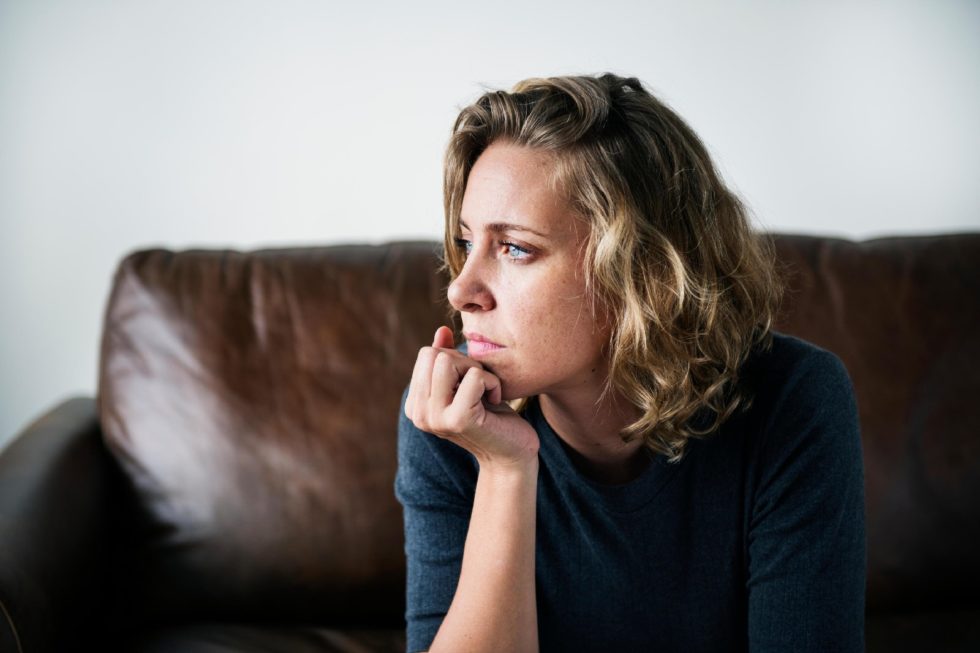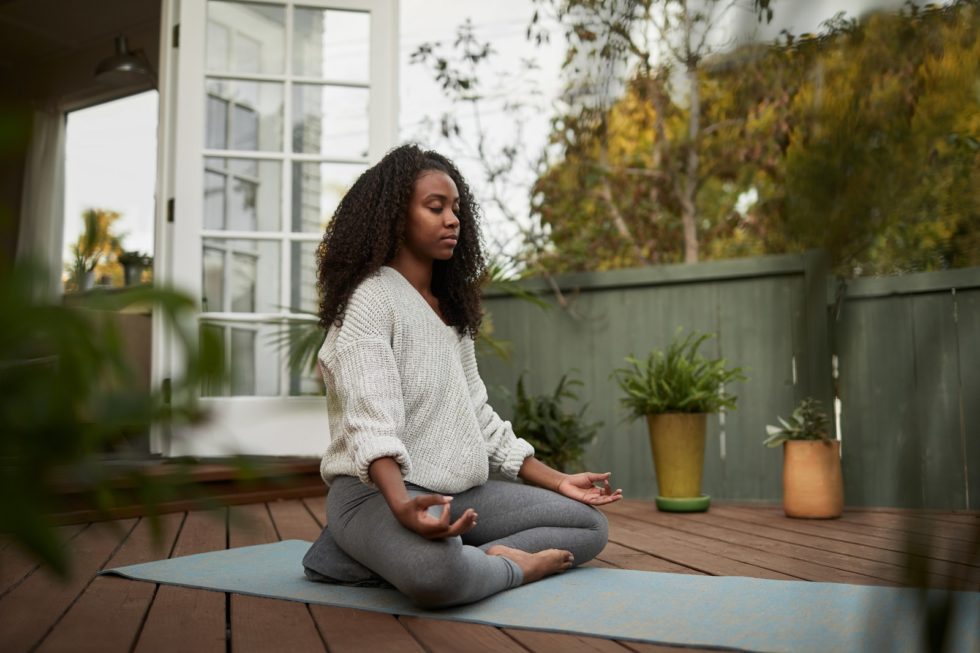6 Tips to Overcome Vein Treatment Anxiety
Author: StrideCare Internal Team

Matthew* suffered from painful varicose veins for far too long. The only problem is that, in his mind the anxiety of whatever vein treatment his doctor will suggest far outweighs the discomfort and embarrassment of the condition itself. This is what is commonly referred to as vein treatment anxiety. Out of the roughly 25 percent of men and women in the United States who experience symptoms, the number of people who delay treatment because of their anxiety is staggering. Their fear of complicated surgery and lengthy recovery times, even just visiting the doctor to find out, keeps them from seeking treatment. However, they are unaware that the reality is not as scary as they think.
Vein treatment anxiety shouldn’t be swept under the rug. This is why more and more doctors are open to back-and-forth dialogue with their patients to answer questions, set expectations, and honor their wishes. As a result, most patients find that modern medicine has advanced so much, enabling specialists in venous disease to treat varicose veins in an outpatient setting under local anesthetic with no sedation. And depending on your particular vein problem, there are options to cosmetically improve the look of your veins and eliminate painful symptoms such as:
- Burning, throbbing, and swelling in the lower legs
- Achy or heavy feeling in your legs
- Muscle cramps
- Worsened pain after sitting or standing for a long time
- Restless legs
- Numbness, tingling
- Varicose veins that feel warm and tender to the touch
- Leg ulcers or sores
Vein Treatment Anxiety Is More Common Than You Think
Veins serve a specific purpose—sending blood from the legs back up to the heart. But as we age, these veins don’t always work as well. They can become narrow and even malfunction due to damage to the valves. As a result, blood flows forward but also backward, in the wrong direction (reflux). This reversal of flow leads to pooling of backed-up blood, which then causes the veins to bulge, stretch, and enlarge. Some people don’t experience symptoms. Their varicose veins are more of a cosmetic annoyance that they cover up with long pants.
For others, the condition is very painful and can lead to serious and worsening medical issues such as chronic venous insufficiency, leg skin and foot ulcers, and deep vein thrombosis.
But therein lies the rub because many people still delay seeking treatment despite these threats.

According to numerous published reports, including one by the New York Post citing one patient survey that examined 2,000 Americans, fears, anxieties, and other psychosocial factors are often reasons why many people don’t seek medical attention for a variety of health-related issues, including vein treatment anxiety. In that study, 60% of respondents said they avoid seeking medical help for issues they are worried about.
In fact, the average person who puts off a serious health worry had done so for nearly a year, racking up 11 months between realizing they had a medical issue and actually seeking care. The delays range from financial worries to fears about their future and a bad diagnosis, painful surgical procedures, and the symptoms themselves.
Patient perceptions and expectations concerning varicose veins are derived from many sources that are often misleading, unreliable, and offer conflicting viewpoints. Examples of these sources of conflicting information include:
This results in confusion and leads people with varicose veins to become more anxious about their unique situation. If you have been avoiding vein treatment due to anxiety about the procedure, there are things you and your doctor can do to help ease your fears and make the process more bearable.

How To Ease My Vein Treatment Anxiety: 6 Tips
- Talk to a vein treatment specialist
Recognizing and addressing a patient’s true concerns and fears about vein treatment (verbally and written) should be a routine part of good patient management and building trust between the patient and their provider. This puts all questions and answers on the table, avoids unnecessary treatment, and leads to an accurate explanation of the patient’s unique situation. As a result, patients know they have an advocate in their corner who gives them a say in their healthcare journey. This leads to less vein treatment anxiety.
- Get support from family and friends
Beyond letting your doctor know about your vein treatment anxiety, family and friends can be a valuable resource before, during, and after varicose vein treatment. Talk to them about your concerns and ask them what tips and tricks work for them whenever they undergo certain procedures.
- Use distraction techniques
A University of Surrey study found that simple distraction techniques during even the most minimally-invasive varicose vein procedure, such as talking to a nurse, using stress balls, and even watching a DVD can help patients overcome vein treatment anxiety. The study found that interacting with a nurse alone showed 30% less anxiety and 16% less pain than those who didn’t. Those who watched a DVD showed 25% less anxiety. Talk with your vein care specialist and ask if these techniques are an option at their facility.
- Use breathing techniques
Slow and deep breathing before and during a procedure speeds up the delivery of oxygen to your brain. As a result, your mind and body relax, leading to a lower heart rate, blood pressure, and overall stress levels throughout your body.

- Prepare yourself for the procedure
One way anxiety soars before vein treatment is the feeling that you’re not in control or ready for the procedure. Your doctor will likely give you a pre-procedure checklist with things to do to prepare, including understanding your pre-treatment schedule (when to arrive, what to bring, etc.), getting enough rest, eating healthy meals, and exercising to the extent that you are able.
- Educate yourself
In many ways, reducing vein treatment anxiety starts by understanding your medical condition, the procedure you’re having, and how these procedures are performed today. Your vein care professional will certainly be happy to explain, but there is reliable information online that provides an accurate picture of what to expect. Your doctor will likely first suggest that you wear compression stockings, which are a great way to encourage healthy blood flow and possibly avoid future procedures. If compression stockings do not work or are not providing enough relief, there are additional minimally invasive options including sclerotherapy, radiofrequency ablation, and microfoam ablation.
StrideCare Can Help You with Vein Treatment Anxiety
Vein treatment anxiety is common, just know you’re not alone. Your anxiety can be overcome by understanding the next steps in your treatment plan and having the right team in your corner. Whether you need vein treatment now or strategies to prevent further problems, the top vein doctors at StrideCare can help.
Our expert doctors and caring staff at StrideCare utilize the latest technologies and minimally invasive procedures to help our patients with a variety of vein and artery diseases. The vascular physicians at StrideCare are board-certified diagnostic radiologists with additional fellowship training in vascular and interventional radiology.
Prior to starting any new treatment or questions regarding a medical condition, always seek the advice of your doctor or other qualified health provider. This information is not a substitute for professional medical advice.
StrideCare serves the South Texas area including Houston, San Antonio, Austin, Round Rock, Bastrop, Brushy Creek, Cedar Park, Converse, Georgetown, Hutto, Kyle, Leander, Marble Falls, New Braunfels, Pasadena, Pearland, Pflugerville, San Marcos, Schertz, Houston, Sugar Land, Katy, Webster, Bay City, Clear Lake, Lake Jackson, The Woodlands, Universal City, Spring, Kingwood, Stafford, Conroe, Texas City, Cypress, League City, Bellaire, and more.
*Patient stories are true. Names and/or photos may be changed to protect patient confidentiality.


